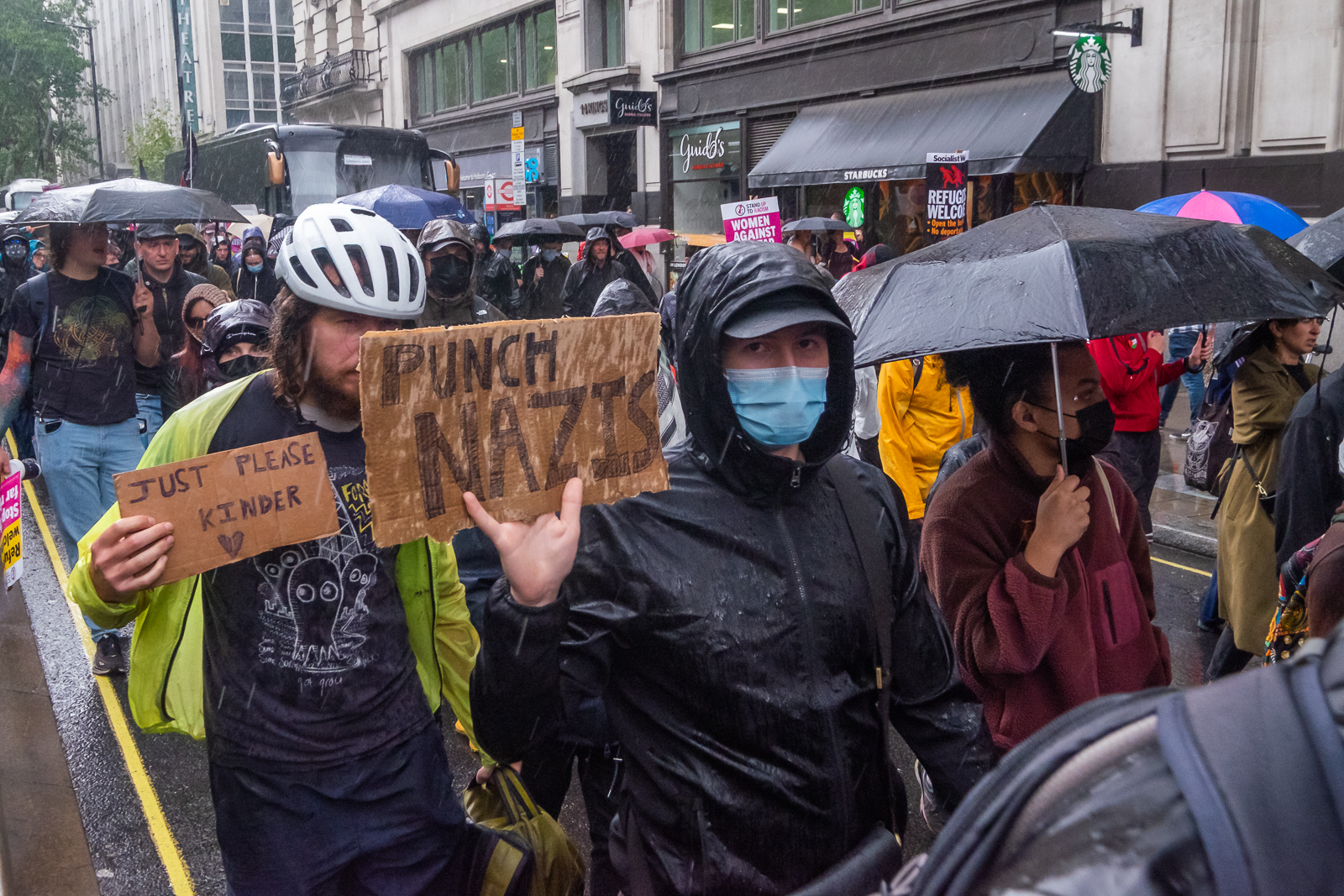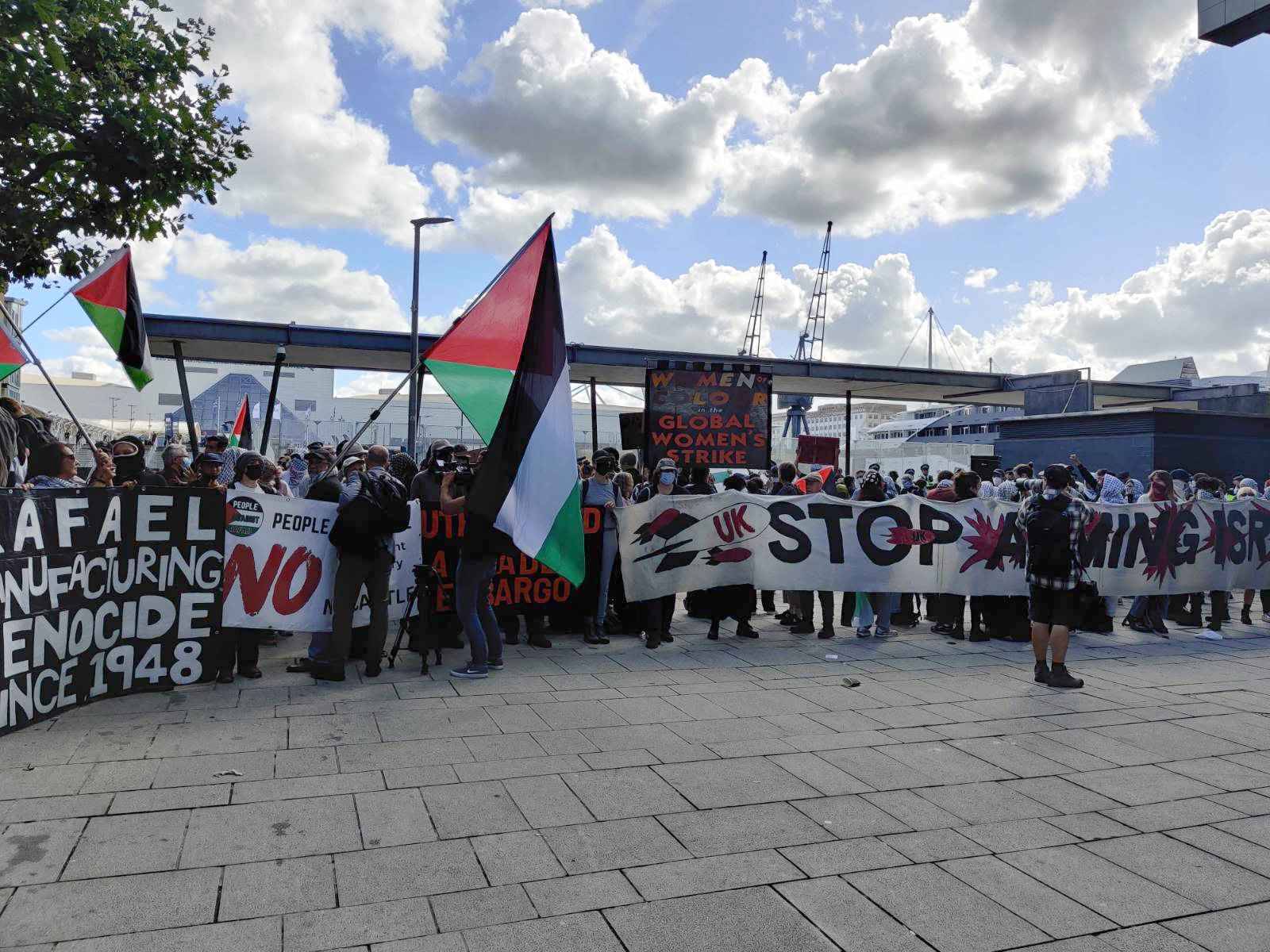Being tough on fascism is no substitute for giving everyone a stake in society — but don’t expect much class analysis from the government
In the immediate aftermath of far-right rioting, the Labour government has come in for praise for how it has handled the situation. The blame has been placed on a mix of actors: the rioters themselves (obviously), social media influencers, the Tories for making culture wars a matter of public policy — and of course the right wing media, for cheerleading a clampdown on immigration. The Labour government has itself avoided criticism so far.
A month after winning their landslide majority, it is perhaps understandable that Labour and Keir Starmer come out of this reasonably well at this stage. He talked tough about the disorder and the State rolled into action, always late but never without force. Never mind that it was communities coming together that really swung things around in the middle of last week. The vast majority of people expect the government to act, it acted, the plaudits follow.
But let’s think back to the messages on immigration that Labour was putting out during the election campaign and earlier. They were opposed to the Tory scheme to send asylum seekers to Rwanda for processing, but not on moral grounds. They never said they found it repugnant. They didn’t say it was a terrible way to treat people. They said they disliked it because it wouldn’t be effective. While cancelling the scheme shortly after coming to power, the Labour government remains in favour of handling asylum claims in third countries. It still wishes to ‘stop the boats’ — but plans to do so by disrupting the gangs that people pay to get them into the country.
On immigration as on policing, Labour pathetically remains committed to its macho posturing. When we look at how it got to this position, we can see clearly that it is also part of the problem. The whole Labour movement needs to take a look at what it has become, after the collective patting of backs has run its course.
The root is the discussion on social class, which I’ve found incredibly frustrating in the last two weeks. People talk about the working class like some abstract thing, far away, too stupid to think, unable to work out right from wrong. It’s as if the working class is embodied by the rioters, then there’s everyone else. What needs shouting out is that [people arriving on small boats to this country are also part of the working class. The people sneering at them, or the rioters, or those who follow the right-wing newspapers and social media influencers — they are mostly working class too. There are all kinds of divisions between us, and the Labour movement has been incapable or unwilling to stop them building up.
The mirage of a ‘middle class’ complicates things further. I’m not sure it really exists in socio-economic terms, and I certainly don’t find it helpful as a label. On the whole, when people use the term they really just mean ‘liberals’. But working class people can also be liberal, just like they can be socialist or fascist. Class is hard to put your finger on, but I take the old fashioned view that it forms through struggle — and that struggle is something we do together.
The rioters have been convinced by nationalist divisions because so few people struggled together with them along class lines. The question for society, once the calls for harsh sentences have died down, is how do we ensure everyone has a stake? How can everyone be included? The working class is large and diverse. When it’s united, it is a force. Labour is just one of the actors who chose to try to benefit from the divisions. Being tough on fascism is no substitute for giving people a reason not to go down that route in the first place.
A few years ago, I was at a protest organised by Class War at a branch of Topshop. Nearby were market stalls and the Class War demo was loud. A stallholder came over and angrily complained. Somebody noticed far-right tattoos on his arm and all hell started to break loose. After some shouting, one of the protesters on our side started to talk to the guy. Why did he have the tattoos? What did he think were the problems of the world? It turned out he’d been involved with the far-right when he was younger but had changed his views a lot since then, and his tattoos didn’t represent how he felt now. We got to a better position and we parted with him seeing the world from a different point of view.
It is these conversations that Labour has shied away from. It failed to oppose the harsh media and Tory narrative on immigration policy; it failed to provide a different banner for people to get behind. Instead, it followed the Tories, who were themselves following Farage, and thus allowed the political goalposts to continue moving ever to the right. Chasing after a parliamentary majority, Labour practically invited the racists to take over the discussion with their easy answers and misinformation. Now communities have to pick up the pieces.
~ Jon Bigger
Top photo: Counter-protesters at racist no-show in Northampton, 7 August.








